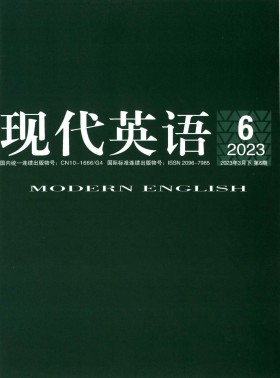前言:中文期刊網(wǎng)精心挑選了英語(yǔ)作文寫(xiě)信范文供你參考和學(xué)習(xí),希望我們的參考范文能激發(fā)你的文章創(chuàng)作靈感,歡迎閱讀。

英語(yǔ)作文寫(xiě)信范文1
1. 這種單車(chē)的使用方法(如:APP查看車(chē)輛、掃碼開(kāi)鎖等);
2. 這種單車(chē)的優(yōu)勢(shì);
3. 你對(duì)這種單車(chē)的看法。
注意:1. 詞數(shù)不少于80;
2. 開(kāi)頭和結(jié)尾已給出,不計(jì)入總詞數(shù)。
提示詞:智能手機(jī) smartphone, 二維碼 the QR code
Dear Jim,
I'm writing to tell you more about the new form ofsharing bike mobike mentioned in your latest letter.
It's very convenient to use if you have a smartphone. What you do is to find a nearest mobike through the APP, scan the QR code on the bike, and enjoy your trip.
Compared to other forms of sharing bike, the greatest advantage of mobike is that you can easily find one and never worry about where to park it. It is becoming a new trend as a means of transportation, which relieves the traffic pressure and does good to the environment as well.
Hope to ride a mobike with you in China.
英語(yǔ)作文寫(xiě)信范文2
英語(yǔ)資源網(wǎng)權(quán)威2016年6月英語(yǔ)四級(jí)寫(xiě)作應(yīng)用文模板:感謝信,更多2016年6月英語(yǔ)四級(jí)寫(xiě)作應(yīng)用文模板相關(guān)信息請(qǐng)?jiān)L問(wèn)英語(yǔ)資源網(wǎng)。 Dear_________,
I am writing this letter to express my sincere gratitude for___________.Had it not been for your assistance in ___________,I fear that ___________may not have____________.I’d like you to know that your help __________.It not only____________,but also__________.I shall always remember__________.
I hope that I will have the opportunity of returning your hospitality by inviting you to ______.Will you kindly let me know whether you____________?I am looking forward to seeing you soon!
Again,I would like to express my thanks to .Please accept my appreciatin and pass my best wishes on to ____________.I hope to hear from you soon.
Yours,
英語(yǔ)作文寫(xiě)信范文3
1 引言
英語(yǔ)應(yīng)用文寫(xiě)作課程是高職高專(zhuān)英語(yǔ)教學(xué)中的一門(mén)基礎(chǔ)課程,新課改中提出,高職高專(zhuān)學(xué)生需掌握必備的英語(yǔ)知識(shí)與應(yīng)用技能,可以在日常涉外活動(dòng)和業(yè)務(wù)活動(dòng)中用簡(jiǎn)單的口語(yǔ)或書(shū)面語(yǔ)展開(kāi)溝通交流,要求保持語(yǔ)句通順、無(wú)重大語(yǔ)法失誤、表意清楚。在高職高專(zhuān)英語(yǔ)應(yīng)用考試當(dāng)中,寫(xiě)作部分均是應(yīng)用文。但在教學(xué)中,這一部分始終沒(méi)有引起師生們的足夠重視。
2 高職高專(zhuān)英語(yǔ)應(yīng)用文寫(xiě)作教學(xué)中現(xiàn)有的問(wèn)題
2.1 學(xué)生英語(yǔ)知識(shí)儲(chǔ)備薄弱
經(jīng)過(guò)調(diào)查發(fā)現(xiàn),高職高專(zhuān)學(xué)生在英語(yǔ)科目的入學(xué)成績(jī)普遍較低。其中,學(xué)生們?cè)趯?xiě)作部分體現(xiàn)的問(wèn)題大多為詞匯儲(chǔ)備量不高、語(yǔ)法基礎(chǔ)薄弱、文體格式錯(cuò)誤較多。很多學(xué)生的文章都文不對(duì)題,表意不清。學(xué)生缺乏系統(tǒng)性學(xué)習(xí),對(duì)該科目產(chǎn)生了畏懼的心理。
2.2 學(xué)生對(duì)英語(yǔ)應(yīng)用文寫(xiě)作的認(rèn)識(shí)與理解不足
學(xué)生大多沒(méi)有意識(shí)到掌握好應(yīng)用文寫(xiě)作對(duì)他們未來(lái)應(yīng)用于實(shí)際的重要性,因此,在學(xué)習(xí)過(guò)程中很多學(xué)生沒(méi)有認(rèn)真學(xué)習(xí)應(yīng)用文寫(xiě)作,把它當(dāng)成英語(yǔ)學(xué)習(xí)中可以被忽略的部分。還有很多學(xué)生認(rèn)為,只要掌握了最基本的寫(xiě)作格式就能很好的掌握英語(yǔ)應(yīng)用文寫(xiě)作,但他們還沒(méi)認(rèn)識(shí)到英語(yǔ)應(yīng)用文寫(xiě)作還應(yīng)當(dāng)包含特定的語(yǔ)言特點(diǎn)以及語(yǔ)言語(yǔ)境。學(xué)生們?cè)谡J(rèn)識(shí)與理解上的偏差導(dǎo)致英語(yǔ)應(yīng)用文寫(xiě)作教學(xué)難以順利開(kāi)展。
2.3 老師的教學(xué)方式落后
傳統(tǒng)英語(yǔ)應(yīng)用文寫(xiě)作教學(xué)中,主要是老師對(duì)英語(yǔ)范文展開(kāi)解析,或者由老師點(diǎn)評(píng)學(xué)生的寫(xiě)作。這種教學(xué)方式看重的是寫(xiě)作的結(jié)果,沒(méi)有將英語(yǔ)寫(xiě)作的過(guò)程當(dāng)成重點(diǎn)。同時(shí),一個(gè)班級(jí)通常由很多學(xué)生組成,人數(shù)過(guò)多導(dǎo)致老師教學(xué)壓力很大,在有限的時(shí)間里批改大量學(xué)生作業(yè)通常會(huì)讓老師們?cè)谂嗊^(guò)程中出現(xiàn)很多錯(cuò)誤。有部分學(xué)生在對(duì)待英語(yǔ)寫(xiě)作作業(yè)時(shí)態(tài)度散漫,對(duì)老師批復(fù)的作業(yè)么有進(jìn)行深入思考和完善,這使得教學(xué)沒(méi)有達(dá)到預(yù)期目的。
2.4 教學(xué)和應(yīng)用實(shí)際的脫節(jié)
在實(shí)踐教學(xué)中,老師大多只重視課本的宣導(dǎo),導(dǎo)致學(xué)生只能接收一系列英語(yǔ)概念與語(yǔ)法規(guī)則等,他們空有一腔理論知識(shí),但實(shí)際應(yīng)用能力方面卻得不到有效提升。老師在教授完理論知識(shí)以后,并未展開(kāi)對(duì)應(yīng)的英語(yǔ)實(shí)踐寫(xiě)作活動(dòng),學(xué)生的理論知識(shí)得不到訓(xùn)練機(jī)會(huì),導(dǎo)致學(xué)生無(wú)法將所學(xué)實(shí)時(shí)應(yīng)用于實(shí)際,知識(shí)得不到有效掌握,同時(shí),由于該課程缺乏趣味性,讓學(xué)生的學(xué)習(xí)學(xué)習(xí)積極性大打折扣,導(dǎo)致英語(yǔ)應(yīng)用文寫(xiě)作教學(xué)成效得不到提升,學(xué)生們?cè)谡n后無(wú)法真正掌握寫(xiě)作知識(shí)及技巧。
3 高職高專(zhuān)英語(yǔ)應(yīng)用文寫(xiě)作教學(xué)中的創(chuàng)新措施
3.1 加強(qiáng)師生間討論與交流
可以通過(guò)師生之間的相互交流與討論來(lái)加深學(xué)生對(duì)知識(shí)的印象,還可以深入提高他們對(duì)知識(shí)的理解及運(yùn)用能力。采取創(chuàng)新型的教學(xué)方式,例如,任務(wù)型教學(xué)法或者探究性教學(xué)法,可以讓學(xué)生憑借自己對(duì)問(wèn)題的鉆研及反復(fù)實(shí)踐,實(shí)現(xiàn)他們對(duì)英語(yǔ)應(yīng)用文寫(xiě)作知識(shí)的掌握以及實(shí)踐寫(xiě)作技能上的提升。老師在授課時(shí),可以選擇對(duì)應(yīng)的應(yīng)的寫(xiě)作題目,利用合理化分組的方式,讓學(xué)生們對(duì)題目展開(kāi)解析和討論,讓他們?cè)谶@個(gè)過(guò)程中自己明確應(yīng)當(dāng)在寫(xiě)作時(shí)使用哪種題材或格式、語(yǔ)言風(fēng)格。例如,老師可以擬立寫(xiě)作標(biāo)題,“關(guān)于IT公司求職信的寫(xiě)作”,讓學(xué)生們分組討論,并結(jié)合求職信這一寫(xiě)作體裁及IT信公司的自身特色與職位需求,完成對(duì)應(yīng)的寫(xiě)作訓(xùn)練。
3.2 強(qiáng)化學(xué)生基礎(chǔ)知識(shí)的掌握
英語(yǔ)學(xué)習(xí)者對(duì)于英語(yǔ)語(yǔ)法、詞匯量及遣詞造句上的綜合能力決定了他們能否很好的進(jìn)行英語(yǔ)寫(xiě)作,而這些能力的培養(yǎng)都離不開(kāi)日常的學(xué)習(xí)積累。英語(yǔ)基礎(chǔ)知識(shí)的掌握對(duì)于學(xué)生英語(yǔ)應(yīng)用文寫(xiě)作有幫助很大。詞匯量始終是學(xué)生頭疼的一項(xiàng)學(xué)習(xí)內(nèi)容,老師可以采用創(chuàng)新模式展開(kāi)教學(xué),在降低難度的同時(shí)提升學(xué)生的英語(yǔ)詞匯儲(chǔ)備量。比如,通過(guò)音標(biāo)、音節(jié)、讀寫(xiě)記憶、前綴后綴等方法展開(kāi)教學(xué);語(yǔ)法知識(shí)教學(xué)十分乏味,老師在教學(xué)時(shí)可以將基礎(chǔ)句式交給學(xué)生,學(xué)生在掌握了基本句型以后再展開(kāi)后面的學(xué)習(xí)就會(huì)很簡(jiǎn)單;老師還需要將寫(xiě)作的基本格式教給學(xué)生,讓他們熟記格式,在遇到各種類(lèi)型的文章時(shí)都可以了然于胸,懂得應(yīng)用何種格式進(jìn)行寫(xiě)作。
3.3 教學(xué)中采取點(diǎn)評(píng)與互評(píng)的方式優(yōu)化教學(xué)效果
在教學(xué)中,可以讓學(xué)生展開(kāi)自評(píng)與互評(píng),這樣可以提高英語(yǔ)教學(xué)中的樂(lè)趣,讓學(xué)生體會(huì)到強(qiáng)烈的參與感。要及時(shí)獎(jiǎng)勵(lì)表現(xiàn)優(yōu)異的小組和學(xué)生,以此激發(fā)其他學(xué)生的學(xué)習(xí)興趣,強(qiáng)化學(xué)生學(xué)習(xí)英語(yǔ)的信心。老師要把標(biāo)準(zhǔn)式的英語(yǔ)范文展示給學(xué)生,讓他們熟悉并掌握對(duì)應(yīng)的寫(xiě)作規(guī)范,為他們今后運(yùn)用于英語(yǔ)寫(xiě)作提供參考范本。還應(yīng)讓學(xué)生們多展開(kāi)寫(xiě)作訓(xùn)練與實(shí)踐,要讓學(xué)生在仔細(xì)地理解了寫(xiě)作標(biāo)題,并了解對(duì)應(yīng)的寫(xiě)作技巧和規(guī)范后可以得到及時(shí)有效的寫(xiě)作鍛煉。這種方式可以讓更好地理解與消化寫(xiě)作知識(shí),還可以提升他們實(shí)踐應(yīng)用方面的技能,優(yōu)化教學(xué)效果。
英語(yǔ)作文寫(xiě)信范文4
1. 表示愿和對(duì)方交朋友; 2. 簡(jiǎn)單介紹自己,如愛(ài)好、特長(zhǎng)(體育、文藝等); 3. 希望多了解美國(guó)文化。
注意:1. 電子郵件格式已經(jīng)給出,但不計(jì)入總詞數(shù); 2. 詞數(shù):100左右。
From: lihua@yahoo.com.cn
To: tony@163.com
Subject: making an e-pal
Yours,
Li Hua
One possible version:
Dear Tony,
I am Li Hua, a boy of 16 from China. I’m a middle school student. I’m glad to read your information on the Internet and I know you want to make an e-pal with a Chinese. I want to be your friend and wish to know more about the culture of the USA.
英語(yǔ)作文寫(xiě)信范文5
My grandfather he is an ordinary person, although looks ordinary, but give a person a kind of feeling. He director, gray hair, but he never FuLao. He got up at five o 'clock in the morning run. After running, every day he want to go to work in the garden. Garden is about to start work at 7 o 'clock, it was not until five o 'clock in the evening more work. I admire grandpa perseverance!
In the evening, grandpa is often hard to delve into learning, I also often ask my grandfather: "grandpa, your knowledge is not very high? How to continue to learn?" And grandpa is always gently stroked my head, kind of say: "silly child, never too old to learn, learn seventy also too few." Grandpa also spare time to practice calligraphy. Now, what can I do for as long as the young happy things, will find my grandpa to write couplets! I admire grandpa never too old to learn, love of learning spirit!
But, my grandpa's eyes has a very serious disease. The doctor told him, let him don't do strenuous exercise, especially in the running. My mother returned home to my grandpa said: dad, you don't run again later, was at work, I will help you to work in a few days to leave. And my grandfather said: "life is movement, how can I give up sports?" So grandpa at four o 'clock in the morning, walk which road, and my grandfather also not quit his job. I admire my grandfather have the courage to overcome difficulties and overcome difficulties of spirit!
I admire my grandpa!
在每個(gè)人的心中,都有自己最尊敬的人。而我最尊敬的人則是我的外公。
外公他是個(gè)平凡的人,樣貌雖然普通,但給人一種和藹可親的感覺(jué)。他年逾花甲,兩鬢斑白,但他從不服老。他每天早上五點(diǎn)鐘就起來(lái)跑步。每天他跑完步之后還要去園林里去工作。園林里七點(diǎn)鐘就要開(kāi)始工作,直到晚上五點(diǎn)多才下班。我敬佩外公堅(jiān)持不懈的精神!
晚上,外公還經(jīng)常刻苦的鉆研學(xué)習(xí),我還經(jīng)常問(wèn)外公:“外公,您的學(xué)問(wèn)不是很高了嗎?怎么還要繼續(xù)學(xué)習(xí)呢?”而外公卻總是輕輕地?fù)崦业念^,和藹的說(shuō):“傻孩子,活到老,學(xué)到老,學(xué)到七十還嫌少嘛。”外公還利用業(yè)余的時(shí)間來(lái)練習(xí)書(shū)法。現(xiàn)在,誰(shuí)家只要辦什么喜事,都會(huì)找我的外公去寫(xiě)對(duì)聯(lián)呢!我敬佩外公活到老,學(xué)到老,熱愛(ài)學(xué)習(xí)的精神!
英語(yǔ)作文寫(xiě)信范文6
感謝信的寫(xiě)作策略:表達(dá)感謝之情并說(shuō)明原因提及自己曾受到對(duì)方的幫助再次感謝并表達(dá)回報(bào)愿望。
【例題】
Directions:
You have just arrived in the city where your are going to spend 3 years for your masters degree. You have a lot of preparations to do before the new term starts, but you do not know how to go round the city. A friend, Kevin, you have newly acquainted offered you guidance and helped you through difficulties. Write a letter to express your thanks.
Write your letter with no less than 100 words. Write it neatly on the ANSWER SHEET. Do not sign your own name at the end of the letter. Use Li Ming instead. You do not need to write the address. (10 points)
【范文】
Dear Kevin,
I am writing this letter to thank you for the guidance you have offered me during the past weeks. I was a perfect stranger when arriving this city, even not knowing the way to the downtown area. As you know this is the first time for me to come up to this big city.
I bought a guidance book, but there were still difficulties in going around the city. The streets and shops puzzled me so much that I would rather stay indoors. It is your valuable guidance that has enabled me to go about the city without losing myself. I thank you very much for your kind help. Yesterday I went downtown alone to buy some stationery and other stuff.
Lessons will begin in a few days. I will come over to see you some day next week and tell you everything that has happened to me.
Yours sincerely,
Li Ming
【譯文】
親愛(ài)的凱文:
很感謝你在過(guò)去的幾周中給我提供的指導(dǎo)和幫助。在剛來(lái)這個(gè)城市的時(shí)候我完全是一個(gè)陌生人。我甚至不知道怎么到市區(qū)。你知道的這是我第一次來(lái)這么大的城市。
我買(mǎi)了一本城市指南,但是我依然發(fā)現(xiàn)在這個(gè)城市中有很多困難。街道和商店都讓我很迷惑,于是我就只能待在家里。是你給我的寶貴向?qū)ё屛夷茉谶@個(gè)城市中外出不會(huì)迷路。很感謝你的幫助。昨天我就獨(dú)自一人到市中心購(gòu)買(mǎi)了一些文具和其他用品。
再過(guò)幾天,我們就要開(kāi)課了。下周的某個(gè)時(shí)間我再來(lái)看你,告訴你我這里發(fā)生的一切。
李明
謹(jǐn)上
【感謝信開(kāi)頭常用句式和套話】
I would like to convey in this letter my heartfelt thanks to you for
Thank you very much for
I dont know how to thank you for your kindness to me.
【感謝信結(jié)尾常用句式和套話】
My thanks to you for your kindness and assistance when Iand my love for you, always!
I must thank you again for your generous help.



